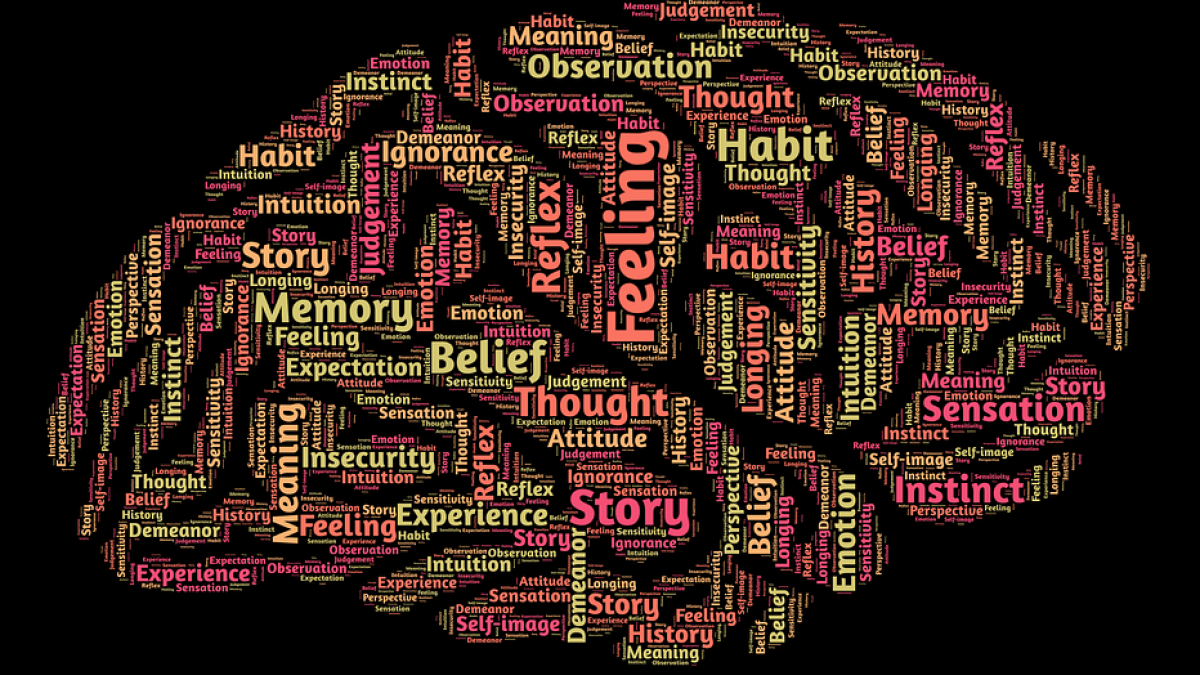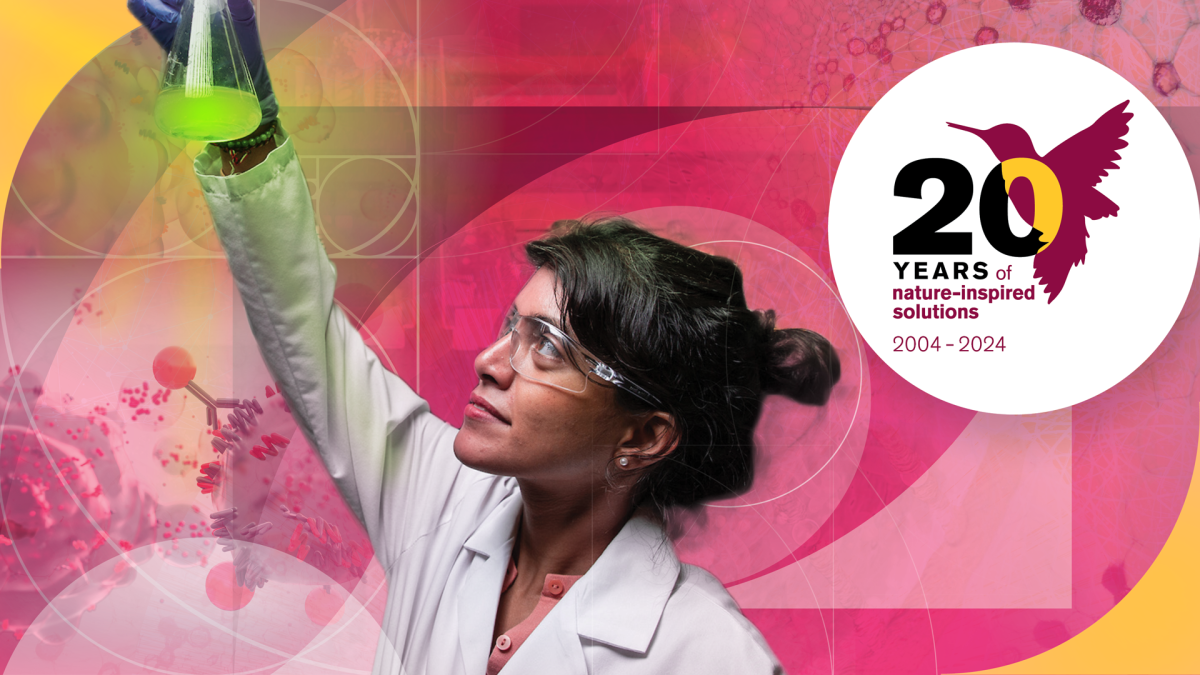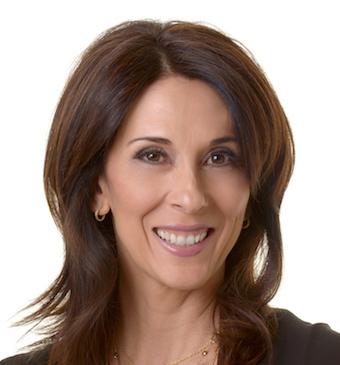Nancy Gonzales named dean of natural sciences in ASU's College of Liberal Arts and Sciences

To say the town of Miami, Arizona, is small is an understatement — it covers less than a square mile with a population just under 2,000. It’s a place a lot of people left when they grew up, said Nancy Gonzales, herself an expat of the once-thriving copper boomtown.
But growing up there left its mark on the Arizona State University Foundation Professor of psychology.
Almost everyone in Miami, including much of Gonzales’ extended family, worked for the mines, where the division between the blue-collar laborers and the white-collar executives and engineers was clearly demarked along ethnic lines. As a youth, she witnessed two major labor strikes that impressed upon her the importance of a solid foundation of community and shared values in achieving success.
Nancy Gonzales
“I was raised in a Mexican-American mining community in Arizona that a lot of people looking from the outside might characterize as ‘at-risk’ based simply on its demographics. But there was tremendous strength and pride among the families in my community at that time, and a strong conviction that education would open opportunities for future generations," she said, adding that an unusually high percentage of community leaders and current members of the academy grew up in that small community, which made her want to better understand the processes of resilience that enable people to thrive in the face of adversity.
On July 1, Gonzales was named dean of natural sciences at ASU’s College of Liberal Arts and Sciences. She is taking over for Ferran Garcia-Pichel, who will now focus full-time on his work as director of the Biodesign Center for Fundamental and Applied Microbiomics.
Most recently, Gonzales served as the associate dean of faculty within the College of Liberal Arts and Sciences, directing the academic personnel team across the 18 schools and departments that make up the university’s largest college. A renowned clinical psychologist, her research explores how physical, neurological and social development in childhood is influenced by context — community, family, culture — in order to determine patterns of adaptation and functioning that predict academic and psychological well-being.
“Psychology is no longer the study of mental functions as a 'black box' that cannot be seen or measured," she said. "We now study psychological processes, such as attention, emotion, social relationships and mental disorders as being closely connected to biological systems, all of which can be measured and manipulated. Our methods also span across levels, from genetic and neurological bases to broader societal and cultural dimensions. These advances help us understand what it means to be human and also allow us to design meaningful, evidence-based strategies to improve lives.”
Gonzales received her bachelor’s degree in psychology from ASU in 1984, then went on to pursue her master’s degree and doctorate at the University of Washington. She was lured back to Sun Devil country in the early 1990s by the psychology department’s trajectory toward a prevention science emphasis, which she was eager to parlay into research on intervention strategies for minority populations.
“Coming back to ASU brought me home to my community and a research center widely recognized as a national center of excellence in prevention science. ASU was and continues to be the best place for me to pursue community-embedded research with high public health value and impact,” she said.
Gonzales has served as the principal investigator on NIH- and NSF-funded grants totaling nearly $25 million this decade alone. She is the 2018 recipient of ASU’s Faculty Research Achievement Award, for which College of Liberal Arts and Sciences Dean Patrick Kenney commended her work for “(representing) the epitome of locating the intersection between top-tier scholarship and its applicability to people’s everyday lives.”
Currently, she oversees four longitudinal studies that follow families for several years, measuring the children’s development over time and attempting to discern the factors that affect it and to what degree.
Some of the key questions Gonzales and colleagues have been addressing have to do with the role of culture. Particularly among immigrant populations, they are concerned with the extent to which the pressure to conform to mainstream culture jibes with efforts to maintain aspects of one’s traditional culture. What they found is that a strong sense of cultural identity promotes more adaptive stress and coping skills.
“One of the things that we consistently show is that even the kids who are integrating into mainstream culture very fast tend to do better — in terms of educational success, psychological well-being, etc. — if at the same time, they’re maintaining some sense of their original culture in the process," Gonzales said. "For me, the most exciting aspect of that work is that it allows us to then understand points of leverage for programs and interventions, to promote resilience and prevent a wide range of problems that undermine well-being in the community.”
“For me, the most exciting aspect of that work is that it allows us to then understand points of leverage for programs and interventions, to prevent people from developing problems.”
One such initiative, the Bridges/Puentes program, targets kids in low-income, Title 1 schools with large populations of Mexican-Americans whose parents may not necessarily have a good understanding of the U.S. educational system and what resources are available to them. The program works with the families to help them foster the kind of environment in which students can succeed in school and in life.
And it’s working. A recent study showed the program decreased alcohol use in teenagers who participated.
While Bridges/Puentes currently only operates in Phoenix, plans are underway to adapt and implement the program in North Carolina and Nicaragua. And although it was originally geared toward low-income, minority families, Gonzales sees the program as relevant and beneficial to all populations.
Bridges/Puentes is one of many initiatives to come out of the psychology department’s REACH (Research and Education Advancing Children’s Health) Institute, for which she serves as co-director. The institute is a transdisciplinary unit that works both locally and globally, putting rigorous academic research to use by delivering evidence-based prevention and treatment programs and practices that elevate the health and well-being of children and families of communities in need.
“The applied aspects of this kind of work are very exciting to me," Gonzales said. "They fit with my own motivations as a scientist, and they’re very much in keeping with ASU’s emphasis on social-embeddedness and use-inspired research.”
As the College of Liberal Arts and Sciences’ newly-minted dean of natural sciences, she hopes to continue promoting and advancing such an agenda, noting that it benefits all involved. Undergrads who assist with the research gain experience working up-close-and-personal with members of the community in the pursuit of scientific knowledge, and can then take what they learn to write their own papers and presentations. And community members gain positive exposure to ASU.
“When we take these projects into the schools, there are all these kids who see these ASU students coming in, and they’re connecting with the ASU students, and they can better see themselves doing something like that,” Gonzales said.
She also intends to focus on expanding and strengthening inclusive, interdisciplinary collaborations to continue to push the boundaries of science and solve global challenges.
In thinking about teaching students of the future, one thing she intends to focus on in her new role are the innovations of those at ASU studying how to best deliver science education in an increasingly online world.
“Of all the disciplines, the sciences are the hardest to move into the online environment because of the required labs and the need for hands-on experiences with the physical materials,” Gonzales said.
But progress is being made; the College of Liberal Arts and Sciences recently graduated its first cohort of students in the new online molecular sciences program, which utilized a hybrid model that allowed them to do most of their training online and their lab-based work on campus.
The approach, she said, was “highly successful and very well-received.”
“We have many outstanding faculty who don’t just advance knowledge but are also rethinking how to deliver science education in new and better ways to serve future generations of learners," she added. "ASU is a leader in this respect.”
Because in the end, the goal of any school is to educate, and that’s something Gonzales clearly reveres on a personal level.
“It’s a core belief of mine that education opens opportunities,” she said. “It certainly has in my own life.”
More Science and technology

ASU-led Southwest Advanced Prototyping Hub awarded $21.3M for 2nd year of funding for microelectronics projects
The Southwest Advanced Prototyping (SWAP) Hub, led by Arizona State University, has been awarded $21.3 million in Year 2 funding under the CHIPS and Science Act to continue its work advancing the…

Celebrating '20 Years of Discovery' at the Biodesign Institute
Editor’s note: The Biodesign Institute at Arizona State University wraps up its 20th anniversary with the sixth and final installment of its "20 Years of Discovery" series. Each story highlights…

Student research supports semiconductor sustainability
As microelectronics have become an increasingly essential part of modern society, greenhouse gas emissions, which are associated with their use and manufacture, have increased in tandem.…
